sierraclub.org - sierra magazine - september/october 2010 - cool schools - fantasy draft
First round: professors. Second round: classes.
We scouted college catalogs nationwide to draft a dream team of all-star teachers and sure-hit courses. —Avital Binshtock
PROFESSORS
Michael PollanJournalism, UC Berkeley
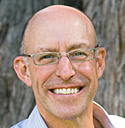 Alia Malley
Alia Malley
Rarely do a book's ideas seep so thoroughly into the collective mind as did those from Pollan's best-seller
The Omnivore's Dilemma: A Natural History of Four Meals. Though his theories resonate in diverse academic circles—food science, genetics, agriculture, ecology, dietetics—Pollan is by trade a journalist, and that's what he teaches at Berkeley. His recent classes have included Getting Over Wilderness, Science Reporting: Covering the Food Chain, and our favorite, The Editor as God.
Jared Diamond
Geography, UCLA
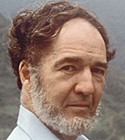 Courtesy of UCLA
Courtesy of UCLAThe Pulitzer Prize-winning author of Guns, Germs and Steel: The Fates of Human Societies is one of the world's foremost experts on how humans' impact on nature can lead to disaster. Diamond's degrees are in physiology and biochemistry, but his classes, including Past Societies and Their Lessons for Our Own Future, are anchored in history. He's also a trailblazer in conservation biology, studying why some species are prone to extinction.
Elinor Ostrom
Political Science, Indiana University
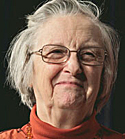 Chris Meyer/Indiana University
Chris Meyer/Indiana UniversityLast year, Ostrom became the first woman to win the Nobel Prize in economics. A pioneer in studying the management of communal resources, she teaches such opaque-sounding courses as Institutional Analysis and Development: Micro. But her topics are specific: how humans make collective decisions and whether individuals govern resources better than institutions do.
Al Gore
Interdisciplinary, Middle Tennessee State University
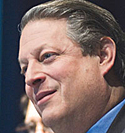 Anne Hamersky
Anne HamerskyA polarizing figure? Perhaps. But the former VP has much to teach. After persuading 51 million people to vote for him to be leader of the Western world, he's clearly qualified to teach a class called Community Building.
James Hansen
Earth and Environmental Sciences, Columbia University
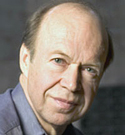 Arnold Adler
Arnold AdlerThe world's most famous climatologist, and the first to speak out loudly about a potential global-warming apocalypse, Hansen is an adjunct professor at Columbia. His class, Introduction to Planetary Atmosphere and Climate Change, must be popular, because he won the university's Teaching Excellence Award in the Humanities and was named Outstanding Teacher in the Core Curriculum.
CLASSES
Stanford University
To get into this class, you have to write an essay about why campus sustainability is important. Then you get to dig through trash. You also learn how to implement a campus energy plan, analyze waste habits, and draft and deploy conservation messages.
University of Washington
This seminar preps students for UW's annual Environmental Innovation Challenge, in which teams build prototypes and develop business plans for products that will help solve environmental problems. Bonus: $10,000 for developing the winning gizmo.
Lewis & Clark College
During this graduate-level class, Thomas Joseph Doherty, editor of the journal Ecopsychology, helps students examine the healing effects of natural places and guides them through ways that people develop "environment identities."
UC Davis
Students get their feet wet during this multidisciplinary, 12-person class about watershed issues. Experts from Davis's Center for Watershed Sciences help students prepare peer-reviewed reports for publication. The fun part: a two-week trip into a watery ecosystem such as Alaska's Copper River, British Columbia's Skeena River, or Oregon's Grand Ronde.
University of Missouri-Kansas City
Future law students should consider this class, which examines the value of nature and human obligations to other animals and future generations. Professor Jim Sheppard, a fan of Ralph Waldo Emerson and John Stuart Mill, helps students grasp why environmentalism is a matter of personal responsibility.